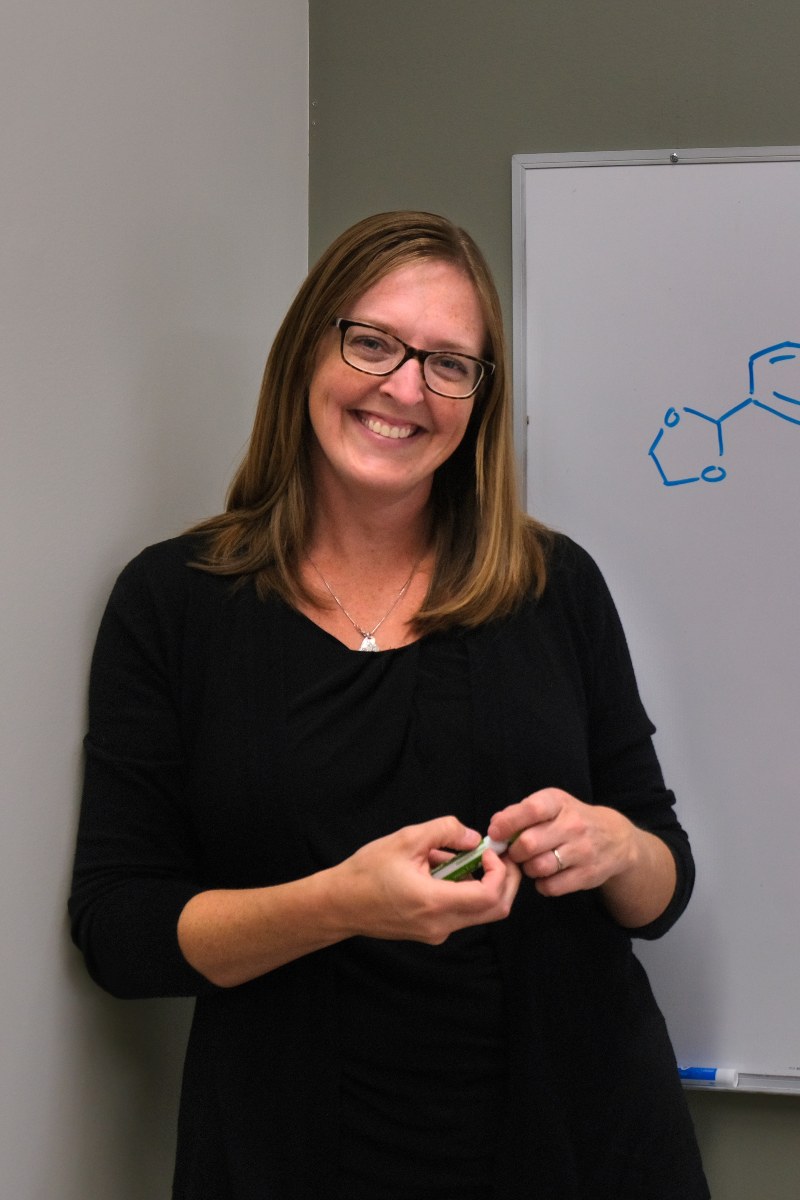Let’s Talk Teaching: Tina Grant
Andrew Lyle - 11 January 2022
Across a variety of fields and all around us, chemistry plays a critical role — and one of the brilliant minds at the University of Alberta sharing the importance of chemistry with the next generation of scientists is Tina Grant, instructor in the Department of Chemistry.
“I’ve always found chemistry fascinating. It’s amazing that we can promote the formation of new bonds and create new molecules that may be helpful in medicine, agriculture and manufacturing processes,” said Grant.
Hear from Grant as she shares her perspectives on teaching, the beauty of chemistry, and living for the “light bulb” moments when students overcome challenges.
What do you teach?
I teach a variety of organic chemistry courses from introductory organic chemistry to a graduate course in qualitative organic analysis.
What do you love about your field?
I’ve always found chemistry fascinating. It’s amazing that we can promote the formation of new bonds and create new molecules that may be helpful in medicine, agriculture and manufacturing processes. I also love solving puzzles, which is probably why I get so excited about proposing reaction mechanisms and using NMR spectra to determine the structures of unknown compounds.
What should students who are interested in this topic know?
Many students come into organic chemistry classes with some trepidation because they’ve been told that it’s hard and requires a lot of memorization, but there is so much more to these intro courses than memorizing structures and reaction conditions. If you can understand how a reaction works, learn where bonds can and cannot be formed, then you can solve any synthesis problem that you are given.
Students shouldn’t be afraid to ask a lot of questions at help sessions and discuss problems with your lab partner, TA and instructor. The more you talk about concepts, the more likely you will find a way to understand the material.
Tell me about your passion for teaching. What inspires you?
I really live for those “lightbulb” moments when a student who has been struggling with a concept finally figures it out. I would love to see that happen for all of my students! I’m very aware of the difficulty of these courses and I understand that it doesn’t come naturally for everyone. I try very hard to find different ways to reach all of my students because organic chemistry is essential to so many different fields of study.
How do you cultivate a community of practice with your fellow instructors?
I have come to understand that the support of my fellow instructors is essential for both personal improvement and course development. This has been particularly important throughout the pandemic. I am grateful that many of my colleagues are willing to get together over coffee to talk about teaching and share ideas about how to improve online and in-person instruction.
What is one thing that people would be surprised to know about you?
I imagine that people would find it surprising that I’m a bit of a gamer. I play World of Warcraft and love old Nintendo games. My family has video game night every week, which is a lot of fun because we get to spend time together playing all sorts of different games.
Favourite thing about working at the Faculty of Science?
My favourite thing about working in the Faculty of Science is that I’ve been given an opportunity to meet and work with some amazing people. From the incredible support staff in the Department of Chemistry storerooms to lab coordinators and my fellow instructors, I’ve made some great friends and become a part of a wonderful community.
Curious to learn more? Find more information on teaching and learning in the University of Alberta’s Faculty of Science.
